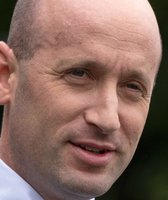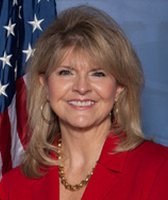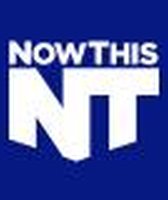Get PolitiFact in your inbox.

Susano Cordoba, right, sells peanuts to truck drivers lining up to cross the border into the United States as tariffs against Mexico go into effect, Tuesday, March 4, 2025, in Tijuana, Mexico. (AP)
April 2 is a big day.
For U.S. President Donald Trump, it’s what he’s described as "liberation day," the date he planned to roll out "reciprocal" tariffs with countries that have trade imbalances with the U.S.
And for fact-checkers, it’s International Fact-Checking Day, the post-April Fools’ holiday started by Poynter’s International Fact-Checking Network. It’s a day to celebrate the importance of facts and the news organizations that promote them through rigorous and nonpartisan accountability journalism.
That Trump and fact-checkers are both marking this day for different reasons brings into focus a central part of what we do at PolitiFact. We seek to add clarity to complicated topics — and we’ve done a lot of reporting around tariffs, a dense issue that holds profound global impact but takes time to unwind.
Trump campaigned on an "eye for an eye, a tariff for a tariff" policy, and he directed trade officials Feb. 13 to size up all U.S. trading partners for "unfair trade practices" — not just other countries’ tariffs, but also a potentially wide range of policies including value-added taxes, subsidies and regulations.
Trump and his allies have regularly dismissed concerns about the economic threat tariffs pose. Some arguments don’t hold up to factual scrutiny.
For example, Trump frequently says the U.S. pays Canada a $200 billion "subsidy," including in his Super Bowl interview. This is exaggerated. The U.S. trade deficit with Canada for goods was $64 billion in 2024, and it was smaller when services are included. Beyond that, it’s not accurate to call a trade deficit a subsidy; the money going from the U.S. to Canada is to buy goods and services with a monetary value, not out of the United States’ goodwill.
During a March White House briefing, White House Press Secretary Karoline Leavitt turned a concern shared by most economists on its head, saying "tariffs are a tax cut for the American people." PolitiFact Chief Correspondent Louis Jacobson pressed seven economists on how this statement could be valid. Citing years of data and analysis, the economists said much of the additional cost of the tariff is passed on to consumers through higher prices.
The economists said Leavitt could be arguing that the added revenue to the treasury from raising tariffs might allow the government to lower taxes. However, analyses show it’s unlikely high tariffs could generate enough revenue to permit meaningful tax reductions for typical Americans. We rated Leavitt’s statement False.
In a recent interview with Newsmax, Trump said that thanks to his tariffs, "We have automobile plants being built at levels we've never seen … and they're going up fast." We rated this Mostly False. The White House cited announcements of major U.S. investments by Hyundai, Honda and Stellantis since Trump took office, but with one exception, these were reallocations of investments at existing facilities, not "plants being built," which is a process that can take years. He also left out that automotive manufacturing construction increased substantially under his predecessor, Joe Biden.
When Trump and his advisers make false or misleading statements to boost their trade policies, they veer into complicated territory. That’s when our fact-checkers dive into policy papers and approach subject matter experts with precise questions, investing the time it takes to get clear-eyed assessments of these complex issues.
PolitiFact dedicates resources to cover trade because it is important public policy. Tariffs and other regulations affect the prices of cars we drive, food we eat and energy we use. The details matter, for consumers in the U.S. and the rest of the world.
PolitiFact’s scrutiny goes both ways. During the 2024 campaign, we explained Democratic presidential nominee Kamala Harris’ use of top-end estimates of the consumer price hikes expected with Trump’s trade plans.
Our international journalist peers have covered relevant U.S. policy justifications for their audiences, too.
Reporting on the U.S.-European Union trade relationship, German outlet DW covered the other side of Leavitt’s March 11 argument that "tariffs are a tax hike on foreign countries." DW said this statement is also false because the charge on imports "leads to higher prices that companies and customers may pay in the country itself for these imported goods, or to less consumption of foreign goods."
London-based Full Fact examined how Trump resurrecting 25% global tariffs on aluminum and steel imports and other trade policies could affect the United Kingdom, explaining that most British exports to the U.S. are services rather than goods.
Mexico City-based Animal Político has also corrected misinformation inspired by U.S. trade policy. A widely circulated video said Mexico shut down the border as a result of Trump’s anticipated tariffs, showing workers pulling a metal barricade across a bridge. The real story was less dramatic; Animal Político explained that a planned strike temporarily blocked traffic on the World Trade Bridge in the border city of Nuevo Laredo. For people who cross the U.S.-Mexico border for routine work and family reasons, this video had potential to disrupt.
Tracking and unpacking the impact of tariffs is neither free nor easy — and for many fact-check outlets, including PolitiFact, it’s been a tough financial year already.
Meta’s U.S. partners learned in January that the company would end its established third-party fact checking program for a user-driven community notes model. We’ve made cuts to staff and are searching for new ways to support our journalism about false claims online and, yes, pocketbook issues such as tariffs.
Today is the final day of our spring fundraising campaign. If you would like to support PolitiFact’s nuanced and independent reporting on the economy and trade, immigration, LGBTQ+ issues and online disinformation, please consider donating.
Our Sources
See sources linked in story.


















































